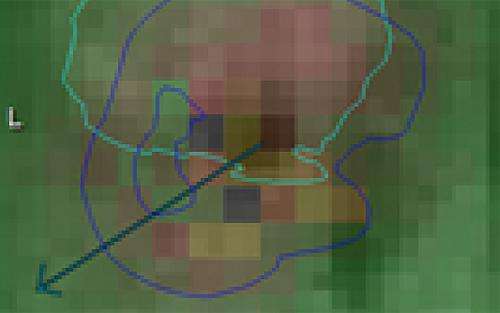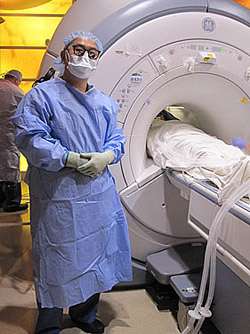Doctors treat deep brain tumor with novel MRI-guided laser technology

Using a novel magnetic resonance imaging (MRI)-guided laser technology, neurosurgeons at UC San Diego Health System have successfully treated a malignant tumor deep inside a patient's brain. This is the first time that this FDA-approved laser-based treatment has been performed in California.
"The patient's brain tumor was located in the thalamus. Normally, to access a tumor in this region, the surgeon would have to remove considerable healthy brain tissue, thus subjecting the patient to significant neurologic injury," said neurosurgeon Clark C. Chen, MD, PhD, vice chairman of research, UC San Diego Division of Neurosurgery. "This MRI-guided laser technology helps neurosurgeons preserve healthy brain tissues while allowing treatment of tumors that would otherwise be inoperable."
Chen and his team used a technique called laser interstitial thermal therapy. The procedure is performed inside an MRI machine while the patient is under general anesthesia. A dime-size hole is created in the patient's skull to access the tumor. A laser probe is then inserted into the tumor under real-time MRI monitoring and computer guidance. When the tumor is reached, the laser beam is activated, heating and destroying tumor cells.

"It is well-known that MRI can be used to generate detailed images of the brain. What is less known is that MRI can also be used to measure the internal temperature of the brain," said Chen. "With this application, I can view the tumor in real time as it is being destroyed while customizing the effects of the laser to the tumor without injuries to the surrounding normal brain. This incredible visualization allows neurosurgeons to preserve billions of neuronal connections that are essential for normal brain function."
Many types of brain tumors can be treated using this laser technology, according to Chen, including glioblastomas, anaplastic astrocytomas and brain metastases. A comprehensive risk-benefit analysis is conducted for each patient to determine if a minimally invasive or open-approach is best suited to the patient's specific tumor type. Chen added that his goal in all procedures is to destroy the brain tumor while maintaining the highest quality of life for his patients.
Patients undergoing thermal ablation are typically discharged from hospital one day after the procedure and can return to normal activities. The laser ablation requires real-time MRI monitoring and a dedicated intra-operative MRI team. The procedure cannot be performed in a conventional operating room.
The NeuroBlate System was developed by Monteris Medical, Inc., Plymouth, MN. The NeuroBlate System is also used to treat epileptic disorders and chronic inflammation caused by ionizing radiation.

















